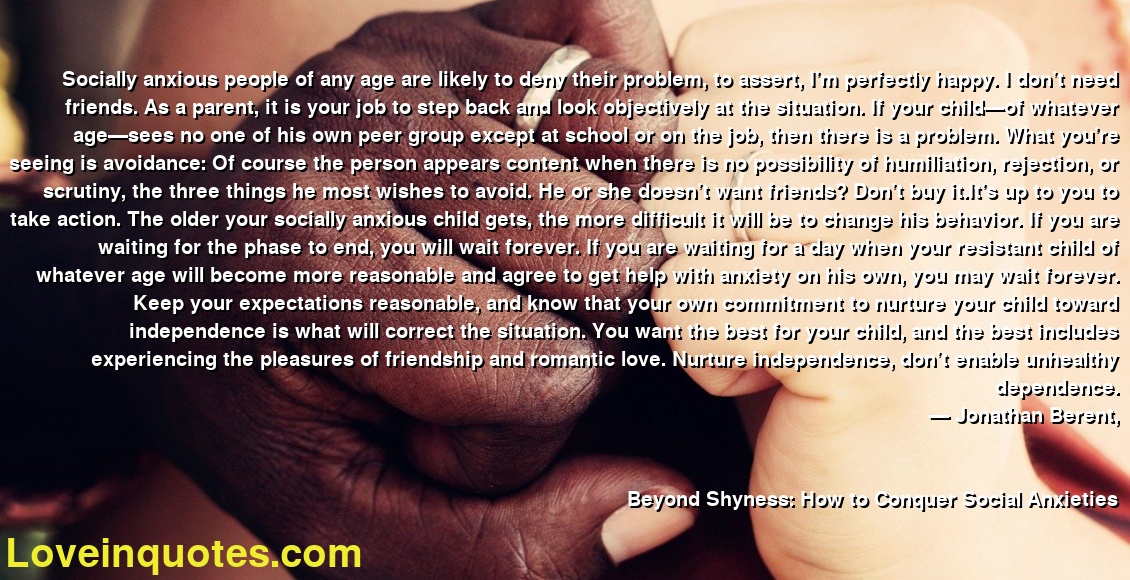
Socially anxious people of any age are likely to deny their problem, to assert, I’m perfectly happy. I don’t need friends. As a parent, it is your job to step back and look objectively at the situation. If your child—of whatever age—sees no one of his own peer group except at school or on the job, then there is a problem. What you’re seeing is avoidance: Of course the person appears content when there is no possibility of humiliation, rejection, or scrutiny, the three things he most wishes to avoid. He or she doesn’t want friends? Don’t buy it.It’s up to you to take action. The older your socially anxious child gets, the more difficult it will be to change his behavior. If you are waiting for the phase to end, you will wait forever. If you are waiting for a day when your resistant child of whatever age will become more reasonable and agree to get help with anxiety on his own, you may wait forever. Keep your expectations reasonable, and know that your own commitment to nurture your child toward independence is what will correct the situation. You want the best for your child, and the best includes experiencing the pleasures of friendship and romantic love. Nurture independence, don’t enable unhealthy dependence.
― Jonathan Berent,
Beyond Shyness: How to Conquer Social Anxieties
Like Jonathan Berent?
Buy Jonathan Berent products
[easyazon_link keywords=”Jonathan Berent” locale=”US” tag=”bestsellerlisting-20″] [/easyazon_link]
[/easyazon_link]
Do you Like Positive words, poetry and words to describe someone you love?
Check out
| https://positivewordsdictionary.com/ |
| https://wordsthatrhymewith.com/ |
| https://wordstodescribesomeone.com/ |




![Love doesn’t need consent or someone’s approval. It is as inevitable as life and death.
― Samreen Ahsan,
Once Upon A [Stolen] Time Love doesn’t need consent or someone’s approval. It is as inevitable as life and death.
― Samreen Ahsan,
Once Upon A [Stolen] Time](https://loveinquotes.com/wp-content/uploads/2021/05/love-doesnt-need-consent-or-someones-approval-it-is-as-inevitable-as-life-and-death-e28095-samreen-a.jpg)


